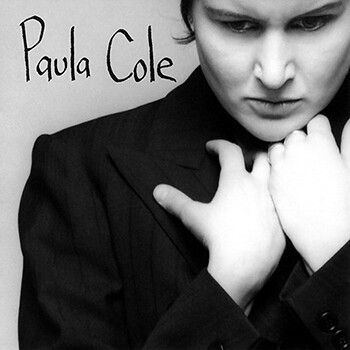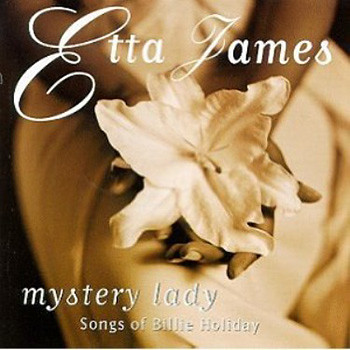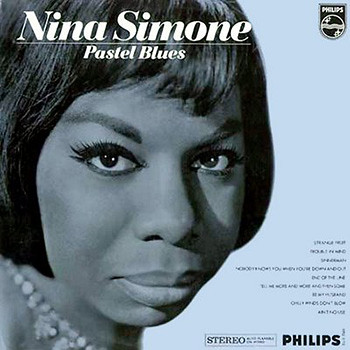
Darius is enjoying the weekend at the Falcon Ridge Folk Festival, and he kindly invited me to fill in for him this weekend. He said it was the first time he's had a guest blogger here; well, it's my first fill-in guest blog as well, so it's a match made in heaven. We're co-bloggers at Star Maker Machine, and I came up with this week's topic after posting there a couple of weeks ago (about New York—Harlem in particular—where Billie Holiday found fame). Another inspiration was Darius's recent post, Men sing jazz too. I thought it must be woman's turn again.

Chris Botti/Paula Cole: God Bless the Child
[purchase]
"Mama may have, Papa may have, but God bless the child that got his own…" Billie wrote the lyrics and Arthur Herzog Jr. the music to this ode to the wisdom of looking out for #1. Since its release in 1941, it's been covered by some terrific vocalists, such as Aretha Franklin, Ella Fitzgerald, Barbra Streisand, Tony Bennett, and…the Simpsons?! This version features Chris Botti on trumpet and Paula Cole on vocals, and is from the soundtrack to the 2007 film, August Rush.

Cat Power: Don't Explain
[purchase]
Hush now, don't explain, You're my love and pain, My life's yours, love, Don't explain. Another tune written by Billie Holiday and Arthur Herzog Jr., this one purportedly about her no-good, cheating first husband (not her no-good, cheating second husband). The minor key adds extra gloominess to her sad resignation. From her autobiography and newspaper records, we can see that Billie's life contained enough grief and heartache to fill countless blues songs like this one.
Cat Power (aka Chan Marshall) spent a good part of her early career walking Billie's path – drinking and drugs and a broken heart left her a mess until the last few years. By 2008, she'd gathered herself together and released an album of cover songs, including this gorgeous piano-backed version.

Eva Cassidy: Fine and Mellow
[purchase]
My man he don't love me, he treats me oh so mean; He's the lowest man that I've ever seen. Yanno, Billie makes her man sound like Mel Gibson. But Billie's gonna have the last laugh, it seems: Love is like a faucet, It turns off and on. Sometimes when you think it's on, baby, It has turned off and gone. In other words: buh-bye, sucker!
This cover is by the brilliant vocalist Eva Cassidy, a Washington-based songstress who died way too early. In her short career, though, she impressed her peers with the clarity and sensitivity of her jazz, pop, folk, and blues songs. Even here, in a live recording of a fairly simple song, the audience is nearly silent, mesmerized by her voice.

Etta James: You've Changed
[purchase]
You're not the angel I once knew, No need to tell me that we're through, It's all over now, You've changed. This song wasn't written by Billie; she covered it in 1958. In this go-round, the jerk who's done our unfortunate singer wrong is of undetermined sex, so it's an all-purpose lament. Kind of like those generic canned foods that filled store aisles with their black-and-white packaging back in the 70's. Suitable for your everyday blues.
Etta James has been singing the blues for decades. She started with Chess Records in 1954, putting out hits over the years that varied among R&B, rock and roll, jazz, and blues. Like Billie, Etta struggled with heroin addiction for many years but unlike Billie, she managed to continue her career despite several setbacks. In 1994, she released an entire album of Billie Holiday covers, called Mystery Lady, which includes this song.

Nina Simone: Strange Fruit
[purchase]
Southern trees bear strange fruit,
Blood on the leaves and blood at the root,
Black body swinging in the Southern breeze,
Strange fruit hanging from the poplar trees.
We now come to one of the most powerful songs ever written or recorded. Where Billie's other songs dealt with the personal – extolling the virtues or (most commonly) bemoaning the failings of her man – this song describes in chilling and vivid detail the dark legacy of lynching of black men in the South. It began as a poem published in 1936 by the Jewish schoolteacher, Abel Meeropol (who used the pen name Lewis Allen), who later set it to music. Billie began performing the song live in 1939, but her label, Columbia Records, refused to allow her to record it under their imprint, although they allowed her a one-song release to record it elsewhere. It remains one of her defining songs. Time Magazine called it the song of the century.
Nina Simone, singer, pianist, civil-rights activist, and legend, seems a fitting woman to carry the weight of this song. Her version was recorded in 1965, a pivotal year for the civil rights movement in America and a year after her own politically-charged song, Mississippi Goddam.
guest post by Geoviki






1 comments:
A feast for the eyes as well as the ears...you had me at Arthur Rackham.
Post a Comment